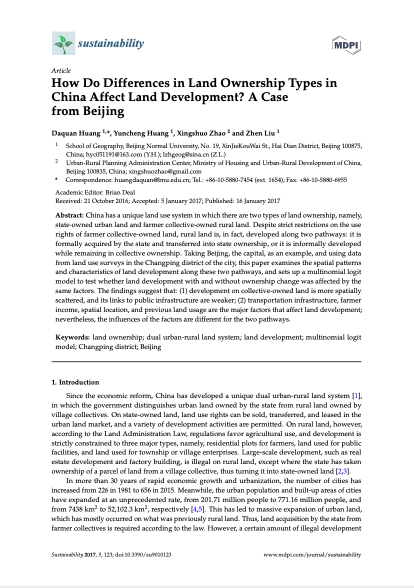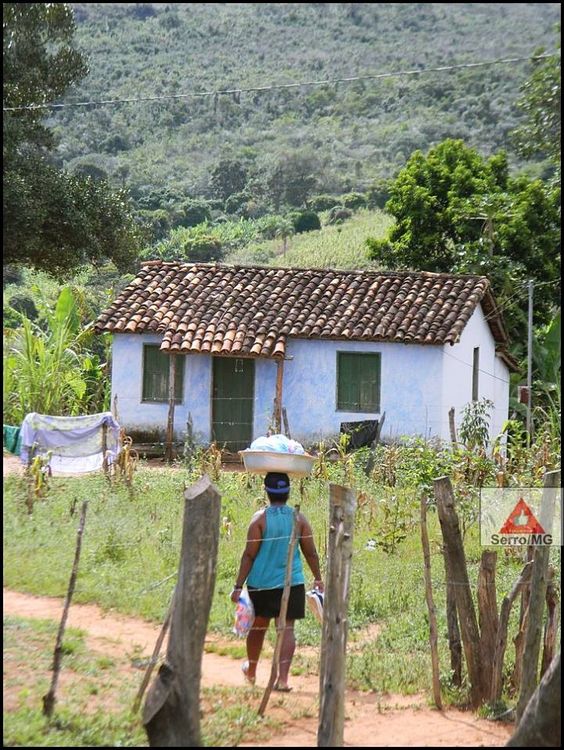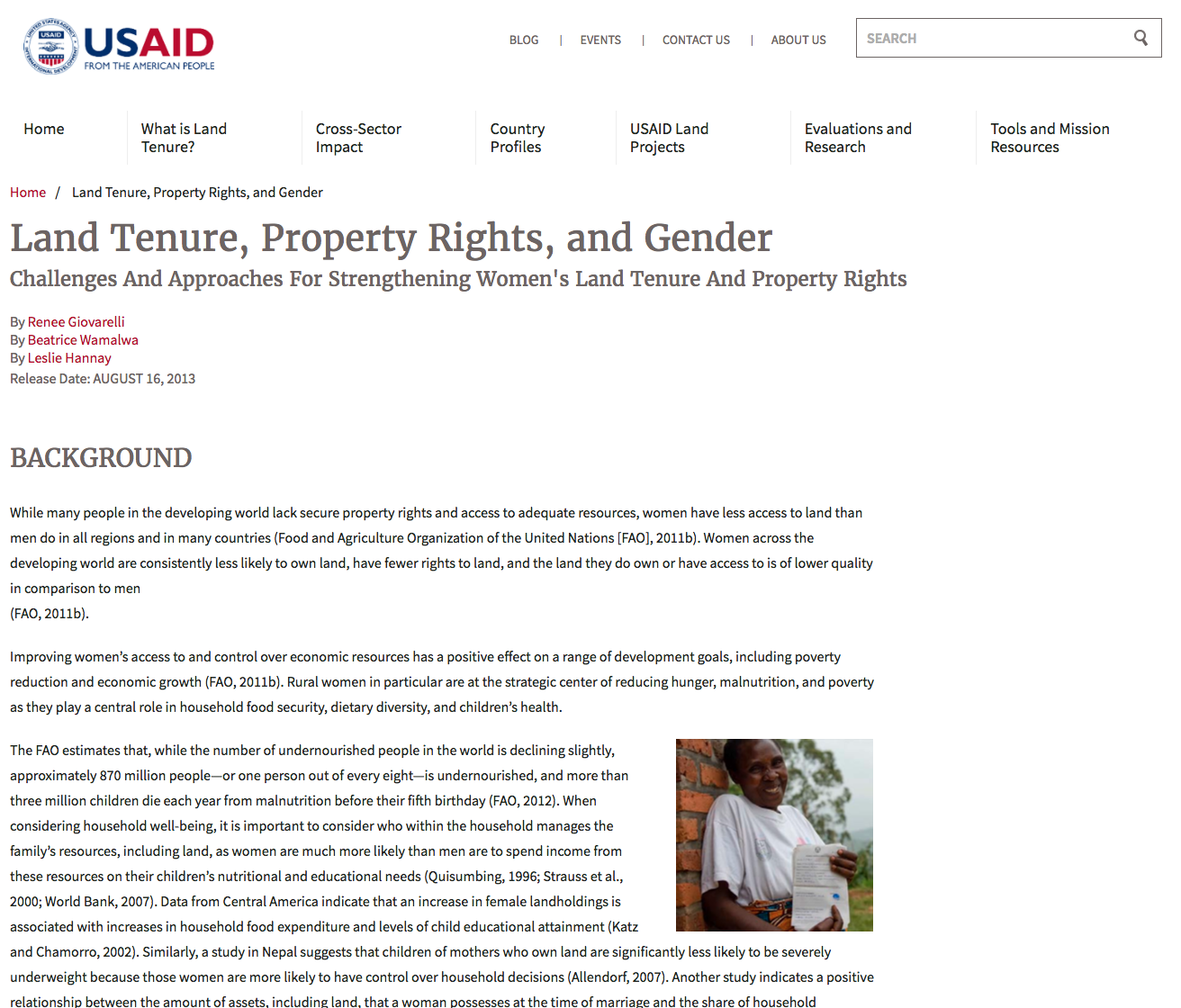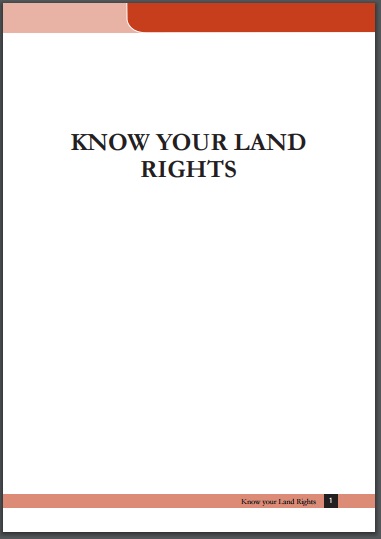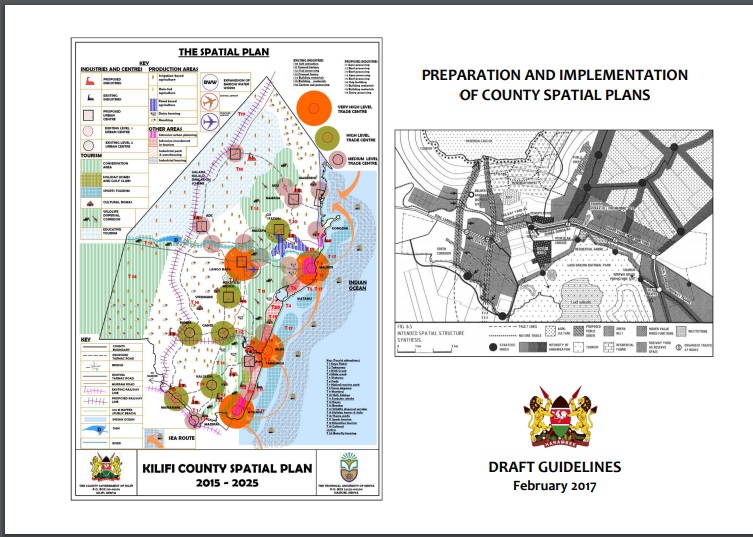How Do Differences in Land Ownership Types in China Affect Land Development? A Case from Beijing
China has a unique land use system in which there are two types of land ownership, namely, state-owned urban land and farmer collective-owned rural land. Despite strict restrictions on the use rights of farmer collective-owned land, rural land is, in fact, developed along two pathways: it is formally acquired by the state and transferred into state ownership, or it is informally developed while remaining in collective ownership.

